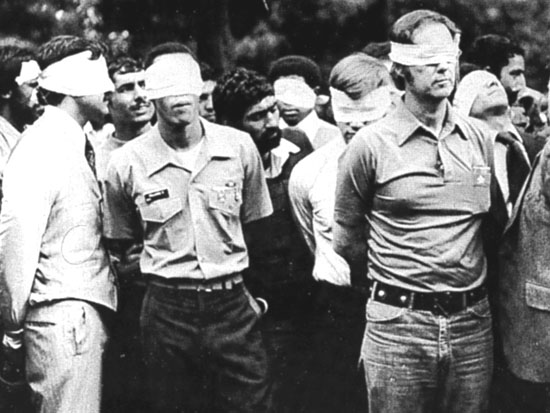When I was a child, my grandmother used to say, “There once was a girl named Patty Hearst who got kidnapped. Don’t you get kidnapped.” But nobody wanted me, so I went and played in traffic.
These are scary times for the internationalist, with rogue states of no defined boundaries and narco-terrorism. America’s ability to set global order has waned after the disaster of the Iraq War and the rise of China. Who will keep you from being kidnapped and used as barter if you’re an executive on the go and the places you’re going include Belgrade and Caracas and Mexico City, or even more dangerous locales where drones are aimed at your head and knives at your throat? No one, that’s who. You’re on your own, MacGyver.
Luckily, Andy “Orlando” Williams of the private security firm Risks Incorporated is here to help save your ass with a three-day kidnap and ransom course. The journalist Mitch Moxley enrolled, participated in a variety of exercises, submitted briefly to a waterboarding, and filed a report for Slate. An excerpt:
As we drive to an office in nearby Pembroke Pines, [Andy “Orlando”] Wilson briefs me on the bourgeoning business of international kidnapping. The White House’s recent acknowledgment of the accidental killing of two al-Qaida hostages in Pakistan in January, as well as the dark news from Syria in recent months, both overshadows and underscores the fact that kidnappings are a global scourge. As incidents have increased worldwide, a parallel industry has emerged, one that includes insurance companies, negotiators, lawyers, and security firms like Risks Inc. In a 2010 investigation, London’s Independent newspaper dubbed this the “hostage industry,” and estimated its worth at about $1.6 billion a year.
“You don’t have to be rich. People will kidnap you for next to nothing,” Wilson says. “Venezuela is out of control. Mexico is out of control.” Most of his clients for the Florida course are executives or wealthy individuals who live in high-risk areas, primarily in Latin America. (Wilson also offers the course in Belgrade, Serbia.) Other students have included American businessmen who travel to potentially dangerous locations, security contractors, and an international yacht captain. (Lambros Y. Lambrou, a trial lawyer in Manhattan and a father of two, took Wilson’s kidnap course to help ensure his family’s safety when they travel to countries like Mexico and Serbia, where his wife is from. “We live in a very uncertain world sometimes,” Lambrou says. “Unfortunately, most of the time the only person you have to protect you is yourself.”)•




